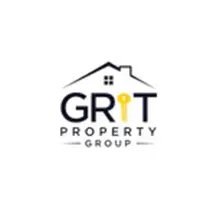According to HomeAdvisor, renovating a home can cost anywhere from $19,485 to $88,364, depending on room size, structural work, and layout changes.
For Kansas landlords, those numbers show just how high the stakes can be. A renovation project can quickly spiral out of control when planning is rushed or details are overlooked. Overspending on cosmetic updates while ignoring critical repairs often leaves properties in worse shape than before.
This article will point out the renovation mistakes that landlords should avoid. If you want to avoid repair costs that pile up and keep your housing unit appealing in a competitive market, keep reading.
Renovation Errors That Can Hurt Kansas Landlords
Below are some of the most common mistakes that can affect property value, rental income, and long-term success for landlords in Kansas.
Overlooking Necessary Repairs
Not all renovations increase property value. Some look good but fail to address critical systems. A Kansas landlord who chooses unique decor or light fixtures instead of updating smoke alarms, electrical systems, or structural elements risks costly repairs later.
Ignoring necessary repairs also violates the implied warranty that guarantees a habitable living environment under landlord-tenant laws. Maintenance work first keeps the income property safe, avoids property damage, and helps property owners maintain consistent cash flow.
Skipping a Realistic Budget
Failing to plan a realistic budget is a frequent renovation mistake. Overspending on nonessential features or underestimating repair costs can create unnecessary expenses. Landlords should prioritize essential updates and improvements that increase property value, such as updating electrical systems, plumbing, or structural repairs, while allocating funds for cosmetic enhancements like a fresh coat or light fixtures.
Poor Planning for Property Maintenance
Ignoring property maintenance during or after renovations is another common error. Kansas law and state regulations require landlords to provide reasonable notice before entering a rental property to make repairs.
Skipping written notice or failing to handle repairs required by rental agreements risks future disputes with tenants. Regular maintenance, such as servicing critical systems, checking smoke detectors, and making upkeep as needed, supports a well-maintained property and helps avoid costly mistakes.
Failing to Improve the Property’s First Impression
Potential tenants and potential buyers form opinions quickly. A rental home with peeling paint, dead landscaping, or broken fixtures is less attractive in a competitive market. Even small updates such as trimming the yard, applying fresh paint, or fixing worn light fixtures can have a significant impact.
These strategic choices attract a broad audience, support higher rents, and lead to higher property value for property owners.
Choosing Low-Quality Materials or Craftsmanship
Going cheap during renovations may seem like a money saver, but poor craftsmanship and low-quality materials often lead to property damage. Repairs required later can be more expensive than doing the job right the first time. High-quality residents want a well-maintained property, not one that looks rushed.
Following local regulations, housing codes, and safety standards ensures renovations offer durability and compliance. Expert advice helps landlords avoid unnecessary expenses while building long-term value.
Ignoring Safety and Compliance
Overlooking safety rules during renovations is one mistake landlords cannot afford. State law K.S.A. § 31-162 requires working smoke detectors on every level of a rental unit, and multi-family properties must also have them in common areas. Skipping this step not only endangers tenants but also opens the door to penalties and costly delays.
Kansas also enforces K.S.A. § 58-2553, which makes landlords responsible for keeping plumbing, heating, and electrical systems in safe working order. Ignoring these requirements creates legal risks and drives up renovation costs when emergency fixes are needed. Staying compliant ensures your property remains both profitable and attractive to tenants.
Over-renovating Without Strategic Focus
Not all renovations make sense for rental properties. A Kansas landlord who spends month’s rent after month’s rent chasing cosmetic updates may see little return. Over-renovating often creates unnecessary expenses without a significant impact on property condition.
Strategic choices, such as making fixes that improve safety, applying fresh paint for timeless appeal, or fixing structural elements, give landlords a higher property value and competitive rates in the rental market. Avoiding over-renovation ensures increased rental income and long-term stability.
Smart Renovations Keep Kansas Rentals Profitable
Renovating a rental housing is not about showing off unique décor. For landlords, it’s about following Kansas law, reducing repair costs, and protecting property value. Avoiding mistakes like ignoring critical systems, skipping regular maintenance, or over-renovating helps landlords stay compliant and keep tenants satisfied.
When renovations are planned with realistic budgets, safety standards, and local regulations in mind, they attract prospective tenants, reduce future disputes, and support consistent cash flow. Well-maintained properties with timeless appeal stand out in the Kansas rental market and offer landlords increased rental income over time.
At Grit Property Management, we help Kansas landlords protect their investments and avoid costly mistakes. Call us today to learn how our team can keep your rental property safe, profitable, and well-maintained.


.jpg)
